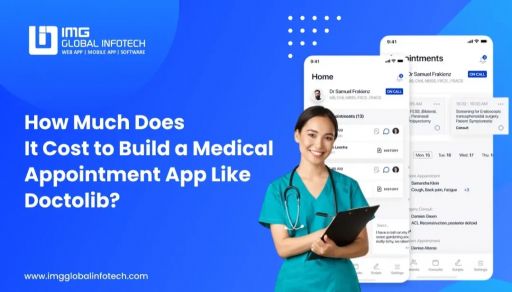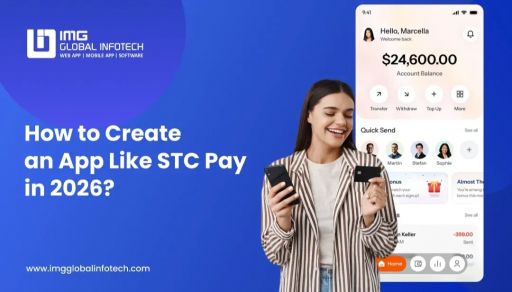How To Build A Restaurant Reservation App?
Dipti Singhal
Oct 29, 2025

Everyone is busy in maintaining their work life balance. They need more time and energy to invest in other things so they do not want to wait in long lines to eat at their favorite restaurant. As the digital world is expanding its capabilities, so are consumers.From flight booking to online food delivery everything you can do from your mobile phone. This comes with the idea of restaurant reservation app development for booking a table in a restaurant for lunch, dinner or family gatherings.
Open Table is a significant player in this industry, according to reports. It caters to more than 16 million people each month around the globe. Is this a surprise to you? It shouldn't. Similar statistics are also available for other popular online restaurant booking apps like Eveve and Seat Me. These facts and figures are very appealing to aspiring entrepreneurs.
If you're also in this area and want to get into the market with the best restaurant booking app development. Let's get started!
Benefits of Restaurant App Development
There are multiple benefits of a restaurant booking app which makes it easier to increase visibility and traffic. Customers and administrators have their limitations. Our specialists ensure that technological advances are used to close all loopholes in your product.
1. For Restaurant Owners
-
Efficient Table Management
Reservation table booking apps help manage seating in real-time, allowing you to optimize table usage, reduce idle time, and increase turnover during peak hours.
-
Reduced No-Shows
With automated table booking confirmations and reminder notifications, the likelihood of no-shows and last-minute cancellations is significantly lowered.
-
Data-Driven Insights
The app collects valuable customer data such as peak booking times, popular dishes, and dining habits, which can be used for better planning, forecasting, and decision-making.
-
Improved Staff Scheduling
By predicting busy hours from reservation trends, you can allocate staff more effectively, improving service without overstaffing with restaurant booking apps.
-
Enhanced Customer Experience
Knowing guest preferences ahead of time (like favorite dishes or special occasions) allows for more personalized service, which boosts loyalty and reviews.
-
Increased Revenue
Efficient bookings, faster table turnover, and personalized upselling all contribute to higher overall earnings.
-
Brand Credibility & Online Visibility
A sleek reservation system enhances your restaurant’s professional image and presence on search engines and social platforms.
2. For Customers
-
Convenience & Flexibility
Customers can book a table 24/7 without needing to call or wait in lines. They can also reschedule or cancel with just a few taps.
-
Time-Saving
Develop a restaurant reservation app for no more standing in queues, diners arrive knowing their table is ready, which improves their overall experience.
-
Custom Preferences
Users can specify preferences like indoor/outdoor seating, high chairs for kids, or dietary requirements when booking.
-
Real-Time Availability
The restaurant reservation app shows up-to-date availability, allowing customers to choose the best time slot without the guesswork.
-
Confirmation & Notifications
Automated confirmations and reminders ensure the customer doesn’t forget their reservation, and they’re updated on any changes.
-
Loyalty Perks & Offers
Many table booking apps integrate loyalty programs and exclusive discounts, giving customers added value for dining out.
-
Peace of Mind
Booking through a secure app gives diners confidence that their spot is confirmed, especially during holidays or busy weekends.
These are just some of the many benefits that an online reservation system can bring. Hire the restaurant mobile app developers to keep up with the latest trends and build customer loyalty. Here are the features you will need to develop an app for restaurant reservations
Business Models of Restaurant Reservation Apps
According to the market statistics, the global restaurant reservation software market is expected to reach $14.70 billion by 2030. It shows how fastly restaurant table booking apps and software are growing in demand. But before investing in restaurant table booking app development, one must know the business models to choose the best one that suits their business requirements.
1. Self-owned App for Personal Restaurant
Building a custom restaurant mobile app for your own restaurant reservation system can be a personalized and quick way to handle your customers. Also you need not to pay any platform charges to third party marketplace.
Advantages:
- Personalized features according to your customers' demand.
- Complete control over the restaurant reservation management system
- Help in monetize your business
2. Aggregator Model
This model works as a marketplace for different restaurant owners, where they can register their food delivery business and pay a fixed amount to restaurant reservation app owners when anyone books a table for their restaurant. Companies such as Dineout and OpenTable earn money by developing table booking apps and making them work on customers.
Advantages:
- Helps in increasing the number of customers
- Reduced challenges in table booking management
- Provide Flexible booking, cancelation and payment options
Steps to Develop a Restaurant Reservation App
A restaurant reservation app makes it easier for customers to reserve tables with just a few taps while helping restaurant owners manage seating, reduce wait times, and improve overall efficiency. Whether you're an entrepreneur or restaurant chain owner looking for restaurant app development, here are the steps to follow to build a table booking app from scratch.
1. Market Research & Define Your Niche
Before diving into restaurant app development, understand your audience and competition.
-
Research user needs (diners & restaurant owners).
-
Analyze competitors like OpenTable, Resy, Zomato, etc.
-
Define your USP (unique selling proposition) e.g., loyalty program, real-time queue updates, special event booking.
2. Decide on Core Features
For Customers:
-
User registration & profile
-
Search & filter (by location, cuisine, rating, etc.)
-
View restaurant details (menu, images, hours)
-
Booking confirmation & reminders
-
Reviews & ratings, offers
For Restaurant Owners/Admin:
-
Restaurant profile management
-
Real-time table management
-
Booking & guest list dashboard
-
Analytics and reports
3. Choose the Tech Stack
Selecting the right technologies is crucial for restaurant app performance and scalability.
Frontend (User Interface):
-
Mobile App: React Native / Flutter (for cross-platform) or Swift (iOS), Kotlin (Android)
-
Web Panel (for restaurants): React.js, Vue.js
Backend:
-
Node.js, Python (Django), or PHP (Laravel)
-
Database: PostgreSQL, MySQL, or MongoDB
-
Real-time updates: WebSockets or Firebase
APIs & Integrations:
-
Google Maps API (location & directions)
-
Twilio or Firebase (SMS/email notifications)
-
Payment gateway (Stripe, Razorpay, etc.)
4. Restaurant App Development
-
Frontend & Backend Development: Build out the app structure and connect the interfaces to APIs.
-
Hire a restaurant mobile app development company that can help you plan, design, and build the app more efficiently.
-
Look for software developers for hire with a proven portfolio in table booking app development.
5. UI/UX Design
-
Design user-friendly interfaces for mobile and web
-
Ensure smooth navigation, especially in booking flow
-
Create wireframes > design mockups > interactive prototypes (using Figma or Adobe XD)
6. Test & Lauch
-
Testing: Do thorough QA for bugs, usability, security, and performance. Cover:
-
Functional Testing
-
UI/UX Testing
-
Cross-device and platform compatibility
-
Security Testing
-
-
Publish the app to Google Play Store and Apple App Store
-
Launch the admin panel on a secured web domain
7. Maintenance & Improvements
-
Monitor usage and performance
-
Collect user feedback and iterate
-
Regularly release updates (bug fixes, new features, UX improvements)
-
Scale features as demand grows (e.g., waitlist management, AI-based table suggestions)
Top Features in Your Restaurant Table Booking App
USER APP PORTAL
You must ensure that your graphical restaurant reservation app has a strong user panel. This will allow customers to enjoy the table reservation process.
- Sign up/sign in quickly: Users can sign into the mobile app with their social networking credentials or an email ID.
- Browse Restaurants: Users can browse the restaurants and see their unique features. They can also check if there are any current specials.
- Search Results for Restaurants: Users can search third-party apps and websites based on the location nearby or specific cuisines.
- Restaurant Page: This page contains all information about the restaurant, from the menus to the prices and descriptions.
- Make Reservation: Once customers have chosen the location, they can make suitable reservations for their desired times.
- Private Dining Request: If you want a romantic meal or a private dinner with your family, private dining requests can be made.
- Add to Favourites: Users can add delicious recipes to their favourites, so they can search and browse less often.
- View Reservations: Users will be able to see the complete list of seats available and can choose to fill the remaining seats or go to another restaurant if they are complete.
- Preferences: Some people don't like onion, while others prefer spicy curry. To avoid confusion later, users can share their preferences well in advance.
RESTAURANT APPLICATION
Your visual restaurant reservation system must look professional and highly profitable. The application for a restaurant must be simple and clearly explain all features your real-time operation may require.
- Sign up: Restaurant owners can sign up here using their credentials.
- Personal Details: Here are the details of the owner. These include his name, occupation, and any other important information.
- Select Membership Plan: The owner must choose the right membership plan, which should renew periodically.
- Make Payment: Once you have selected the plan, it is time to make payment and move on to the next steps.
- Update Details about Restaurants: Information concerning the restaurants must be updated here. Visitors can then view this information.
- Submit Listing To stay ahead of the pack; the best goal is to get listed on the top restaurant lists.
- Floorplan: Restaurant owners must replicate the actual floor plan in digital format. They should then manage it using an iPad or desktop computer.
- ScheduleThis is an important feature that allows restaurant owners and managers to plan their meals and indicate when they will be available.
- Reservation Management This section covers checking reservation status, available and unavailable tables, and managing waiting lists.
- Diner Book: This is a list of past customers and their preferences for food and seating.
- Shift Overview: This section records the number of diners who visited a restaurant during a particular period. Restaurant owners can arrange things.
ADMIN PANEL
The restaurant reservation app in India will provide an food delivery app development solution with a well-organized admin panel. This will make it easier to manage the application and book the reservations.
- Table Management: The administrator of the portal manages dining Spaces. It ensures that both empty and occupied seats are up to date.
- Revenue Optimization: Revenue is managed here. Steps are taken to optimize it.
- Payment Method The online payments made by customers are reflected here.
- Voucher system: Here, the administrator keeps a log of all vouchers and gives it to the users as needed.
Cost to Develop an App for Restaurant Table Reservations
The cost to develop an app for restaurant reservations will depend on your app's complexity. The app development cost is affected by the location of the developers and the time spent creating the app and whether you hire freelancers, in-house developers, or a professional restaurant app development company .
The average restaurant mobile app development cost is calculated by adding the overhead costs. An app with few features can cost between $5,000 and $15,000 for one platform. However, the prices could rise to as high as $15,000+ if the app is complex and driven by high-quality standards.
Top 5 Restaurant Table Booking Apps
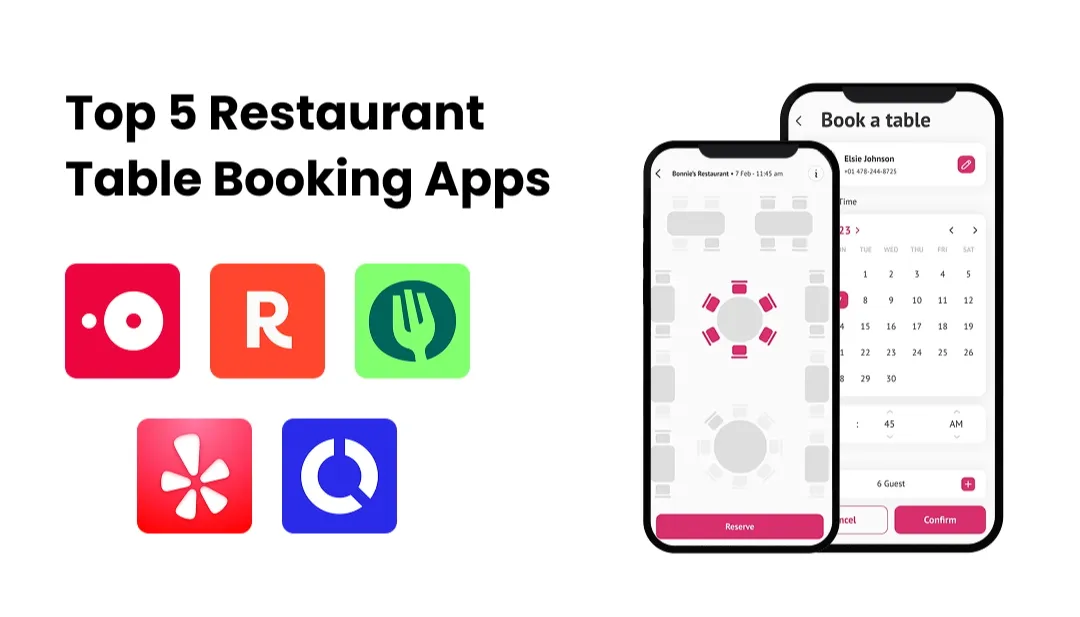
1. OpenTable
-
OpenTable is one of the largest and most established restaurant reservation platforms globally.
-
Real-time table booking, guest management, loyalty rewards, reviews, and ratings.
-
Best For Restaurants of all sizes, from casual to fine dining.
-
Available In North America, Europe, and many other global locations.
2. Resy
-
Focuses on premium dining experiences and offers features like waitlist management and advanced bookings.
-
Reservation management, notifications for availability, waitlists, and integration with loyalty programs.
-
Best For Upscale and trendy restaurants.
-
Available In U.S., Canada, and parts of Europe.
3. TheFork (La Fourchette)
-
A leading restaurant booking app in Europe, owned by TripAdvisor.
-
Online booking, special offers, reviews, and loyalty rewards (YUMS program).
-
Best For Restaurants in Europe and users who want to find dining deals.
-
Available In Europe, Australia, and parts of Latin America.
4. Yelp Reservations
-
Built into the Yelp platform, combining restaurant discovery with reservation capabilities.
-
Reservation management, user reviews, waitlist features, and online reservations.
-
Best For Small to medium-sized restaurants, especially in the U.S.
-
Available In Primarily the U.S., with some international coverage.
5. Tock
-
Known for its flexible booking model, including prepaid reservations and ticketed events.
-
Reservation management, event ticketing, advanced booking, and flexible pricing models.
-
Best For Fine dining, Michelin-star restaurants, and high-end culinary experiences.
-
Available In the U.S., Canada, and expanding globally.
Conclusion
In today’s competitive restaurant industry, providing a seamless and convenient reservation experience is crucial for attracting and retaining customers. A restaurant reservation app not only benefits diners by offering a hassle-free way to book tables, but it also provides restaurant owners with valuable tools to manage bookings, reduce wait times, and improve overall efficiency.
By carefully considering the features, design, and technology stack, as well as working with skilled developers, you can create an app that stands out in the market. Whether you choose to develop the app in-house or hire professional restaurant app development companies, taking the right steps ensures that your app delivers both functionality and user satisfaction.
-
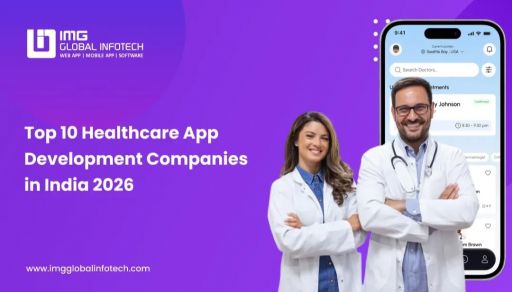 Top 10 Healthcare app development companies in India 2026
Top 10 Healthcare app development companies in India 2026
-
 Flutter for MVP Development: The Fastest Way to Build MVPs in 2026
Flutter for MVP Development: The Fastest Way to Build MVPs in 2026
-
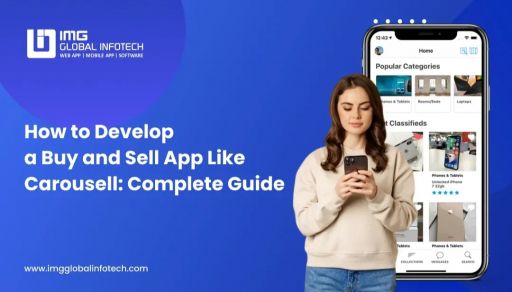 How to Develop a Buy and Sell App Like Carousell?
How to Develop a Buy and Sell App Like Carousell?
-
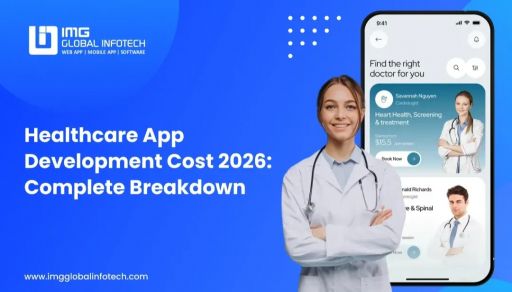 Healthcare App Development Cost 2026: Complete Breakdown
Healthcare App Development Cost 2026: Complete Breakdown
-
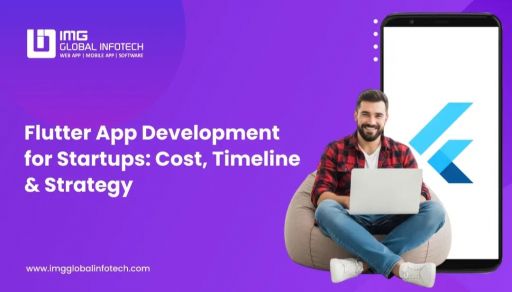 Flutter App Development for Startups: Cost, Timeline & Strategy
Flutter App Development for Startups: Cost, Timeline & Strategy
-
 Top 5 AI Applications Every Business Needs in the AI in Retail Industry
Top 5 AI Applications Every Business Needs in the AI in Retail Industry
Dipti Singhal is a skilled Content Writing Specialist at IMG Global Infotech, with strong expertise in creating engaging, SEO-optimized content for various industries. She focuses on blending storytelling with effective keyword strategies to help businesses connect with their audience and improve their online visibility. Passionate about delivering high-quality content that drives real results, Dipti plays an essential role in strengthening the company’s digital presence.


